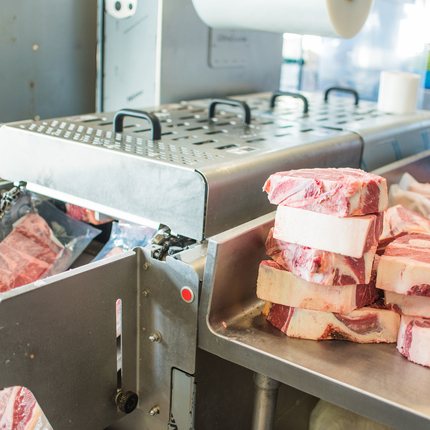This May, the Nebraska Legislature passed Legislative Bill 324 (LB 324), making it easier for local livestock producers to sell directly to the consumer. The legislation was a huge win for producers and consumers alike. Small farmers get access to a larger market, while customers get a great tasting local product at a fair price.
Unfortunately, actions at the federal level could put LB 324 at risk.
As it stands in Nebraska, as well as neighboring Wyoming and Colorado, state or federal inspection of individual cuts of meat is not required if the animal being slaughtered is processed exclusively for consumption by an owner of the animal and members of their household. Currently, there are no limitations on the number of individuals who can own a share of an animal. This allows farmers to make use of the local custom exempt lockers that populate our main streets instead of forcing them to wait for a reservation at a U.S. Department of Agriculture certified facility that may be hundreds of miles away.
The Food Safety and Inspection Service’s (FSIS) National Advisory Committee on Meat and Poultry Inspection will meet later this month to discuss and clarify their position on these custom exempt rules. Specifically, the committee has been asked to consider the following:
- Should FSIS create rules that set a numerical limit on the number of individuals allowed to co-own an animal prior to slaughter?
- Should FSIS create rules that prohibit formal or informal groups of individuals from owning shares in an animal?
- Should FSIS create rules that require custom exempt processors to be responsible for maintaining the records of these ownership agreements?
The Center believes that any attempt to limit the number of individuals allowed to co-own an animal processed under the custom exemption will disproportionately harm small-scale livestock producers and processors. Without arbitrary limitations, producers are better able to utilize a direct-to-consumer model that gives more families access to fresh and locally produced meat.
In addition, recordkeeping should not fall on the shoulders of processors who are already spread thin following the increase in demand brought on by the COVID-19 pandemic. Current regulations already require these ownership agreements to be documented by the producer and co-owners in advance of processing.
Will you join the discussion and speak up on behalf of small meat producers and processors? Your personal input will help illustrate how important LB 324 and similar legislation is to the vitality of our local food systems, as well as ensure other states have the opportunity to adopt similar laws.
The committee will be accepting comments on this issue through Sept. 24. If you would like to participate, please contact me and I will help you draft and submit your comment. If you have any questions, you may also reach me at [email protected].





